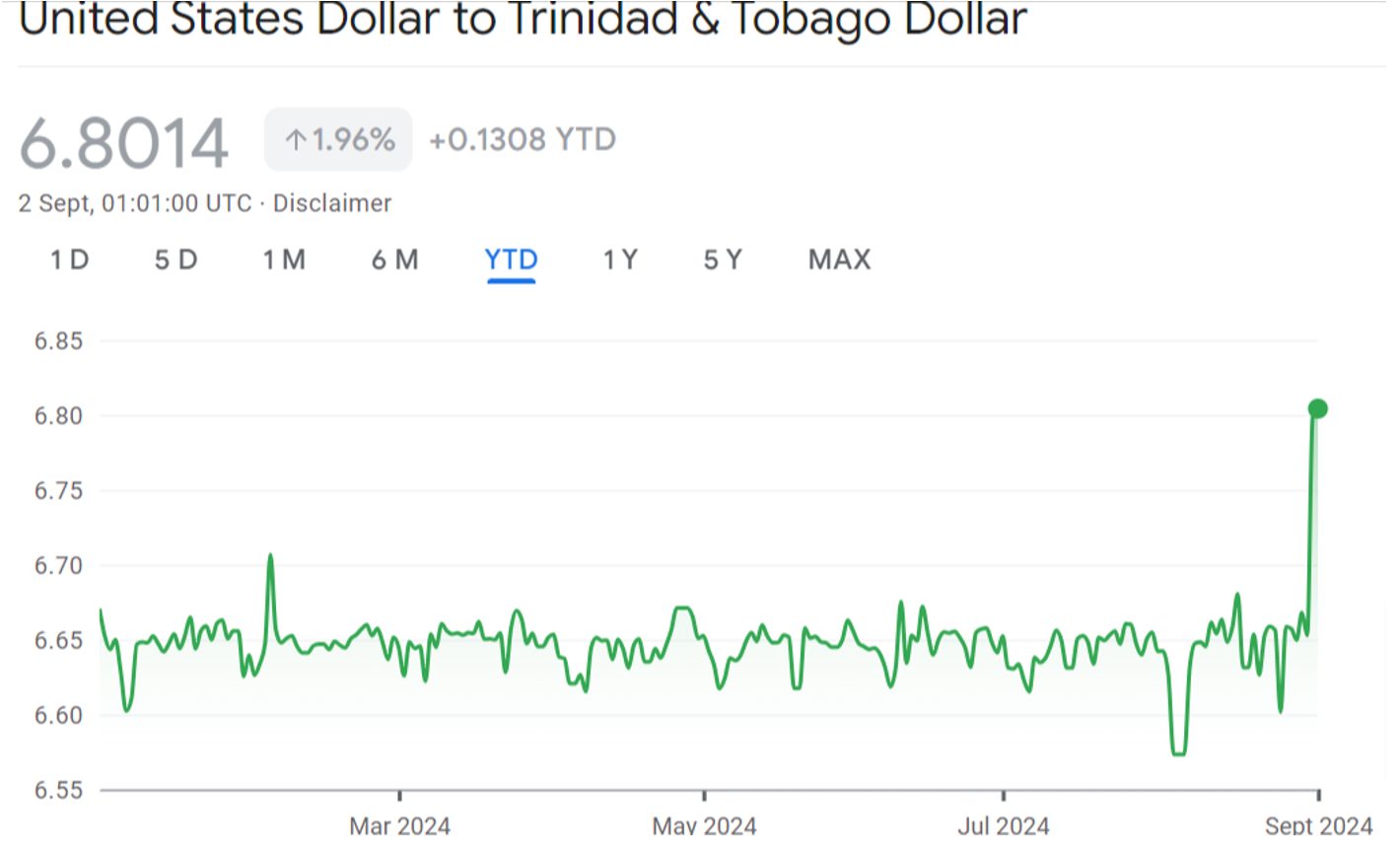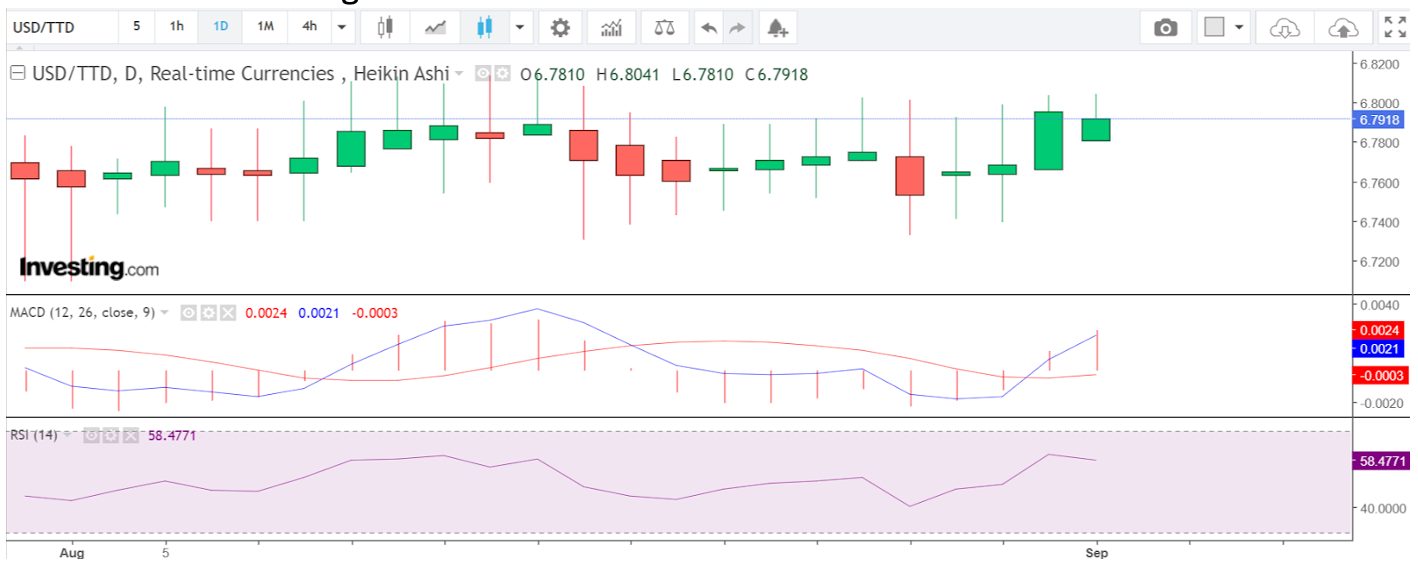Forex Trading in Trinidad and Tobago



Forex trading is gaining popularity in Trinidad and Tobago as individuals look for alternative investment opportunities, spurred on by internet penetration, improving mobile technology and rising financial literacy.
It provides access to global financial markets and a way to hedge against the Trinidad and Tobago dollar (TDD), which has been through periods of depreciation due to pressures on its energy-dependent economy.
Ready to start forex trading in Trinidad and Tobago? This guide for beginners will kickstart your journey.
Quick Introduction
- The TTD is influenced by oil and gas prices and mainly traded against the US dollar in the TTD/USD pair. But due to its low liquidity and availability on forex platforms, traders often prioritize major currency pairs like EUR/USD and USD/CAD.
- The Central Bank of Trinidad and Tobago (CBTT) oversees the country’s monetary policy and financial stability, although it doesn’t actively regulate retail forex trading. The Securities and Exchange Commission (TTSEC) ensures the integrity of the financial markets, but mainly focuses on stocks and bonds.
- The best time to trade currencies in Trinidad is typically during the New York session (8:00 AM – 5:00 PM AST), as it aligns with local working hours and features significant economic data releases that can impact USD currency pairs.
Top 4 Forex Brokers in Trinidad and Tobago
From our latest in-depth tests, these 4 platforms are the obvious choices for forex traders in Trinidad and Tobago:
Forex Brokers in Trinidad and Tobago
How Does Forex Trading Work?
Forex traders in Trinidad and Tobago buy and sell currency pairs such as USD/TTD (US Dollar/Trinidad and Tobago Dollar) or EUR/USD (Euro/US Dollar), to profit from fluctuations in exchange rates.
You would buy a currency pair if you expect the base currency (the first currency listed in the pair) to strengthen. Alternatively, you would sell it if you anticipate the base currency will weaken.
Forex traders often use leverage to amplify trading results with a small outlay, referred to as margin. This can increase profits but also losses. Effective risk management strategies, including setting stop-loss orders and using appropriate position sizing, help to reduce risks.
While traders in Trinidad and Tobago may be interested in the USD/TTD, our evaluations show the TTD is not widely supported on forex platforms and lacks the trading volumes needed for profitable short-term trading opportunities.As a result, they generally trade prominent currency pairs like EUR/USD, USD/JPY and USD/CAD.
Is Forex Trading Legal In Trinidad And Tobago?
Forex trading is legal in Trinidad and Tobago; no specific local regulatory framework is in place to oversee trading currencies.
The Central Bank of Trinidad and Tobago (CBTT) and the Securities and Exchange Commission (TTSEC) don’t specifically restrict forex trading or online brokers.
As a result, residents mainly use international providers governed by regulatory bodies such as the FCA in the UK, the CFTC in the USA, and the ASIC in Australia.
Still, the lack of a developed regulatory framework to supervise forex trading activities, while similar to other Caribbean nations, does bring important considerations:
- You may not get access to investor compensation (like the UK’s FSCS) should your provider go bankrupt.
- You may not get an effective recourse channel (like Australia’s AFCA) to resolve disputes with an FX broker.
- You may be onboarded through an offshore entity with dangerously high leverage (1:50+) for beginners.
Is Forex Trading Taxed In Trinidad And Tobago?
If you are trading as an individual, profits from trading currencies online are generally considered part of your income and are subject to personal income tax.
In Trinidad and Tobago, personal income tax rates are progressive, with a standard rate of 25% on income above the basic tax-free allowance.
If you trade forex as a registered business or through a company, profits get taxed as business income. Companies are subject to the standard corporation tax rate of around 30%.
If forex trading is your main source of income or if you trade frequently, the tax authorities may classify you as a self-employed trader, and your trading profits could be considered active business income.
If forex trading is a side activity, it may be treated as investment income. However, this still falls under personal income tax rules.
It’s important to accurately report your forex trading income and associated expenses on your annual tax return to the Ministry of Finance, as failing to report income accurately can result in penalties.
Due to the complexity and lack of specific guidelines on forex trading income in Trinidad and Tobago, consulting with a tax advisor or accountant familiar with local tax laws is worth considering. It might help avoid penalties.
When Is The Best Time To Trade Forex In Trinidad And Tobago?
In Trinidad and Tobago, the best times to trade forex generally align with the most active global market sessions. The country operates in the Atlantic Standard Time (AST) zone, UTC -4.
- London and New York Session Overlap (8:00 AM – 12:00 PM AST). This is the forex market’s most active and liquid period. Due to high trading volume and volatility, major currency pairs like EUR/USD, GBP/USD, and USD/JPY experience the most significant movements.
- New York Session (8:00 AM – 5:00 PM AST): The New York session is vital for traders in Trinidad and Tobago as it coincides with working hours. Key economic data releases from the US and Canada can drive substantial market moves, especially for USD-related pairs like USD/CAD and AUD/USD.
- London Session (3:00 AM – 12:00 PM AST): The London session sees a lot of market activity, especially in European currency pairs like EUR/USD and EUR/GBP. This session starts early in Trinidad and Tobago, so it suits early risers or those who prefer trading in the morning.
A USD/TDD Trade
Because we’re discussing forex trading in Trinidad and Tobago, I’ll look at opportunities for trading USD/TDD.
Background
The Trinidad and Tobago dollar has been relatively steady compared to the US dollar in recent years, in part because it’s a managed float. The currency could be regarded as a commodity currency based on the country’s balance of GDP in terms of oil and gas production.
My viewpoint remains steadfast when trading minor or exotic currency pairs: risk a small percentage of your account size and be mindful of the wider spreads, less accurate fills, information gaps, volatility spikes and lack of liquidity.
These factors can be a minefield for beginners to navigate. That’s why I’d recommend taking a broader market view of any opportunity by adopting a swing or position trader mindset.
Fundamental Analysis
I always investigate the fundamentals of a country’s economy before taking a market position.
Trinidad and Tobago’s economy is mainly driven by oil and gas production, accounting for about 37% of GDP. It is the fifth richest country in the Americas by GDP (PPP) and the third wealthiest nation in the Caribbean, with a GDP per capita of approximately $18,222.
Trinidad and Tobago has also earned a reputation as an excellent investment zone for international businesses and the finance industry.
Technical Analysis
Focusing on the technical analysis, the line chart below shows USD/TTD was trading in a narrow range until the currency pair experienced a rapid bullish spike.

Delving deeper into the technical analysis, I examined the daily timeframe. I won’t go lower than this because I’m considering holding a swing trade over several days if not longer.
I’ll use a couple of technical indicators: the MACD and RSI. Combined with candlestick formations, the two will deliver all the feedback I need concerning volatility, momentum, and oversold/overbought conditions.

For this analysis, I’ve used Heikin Ashi because its smoothed metrics and appearance help eliminate noise and help me identify movements and trends. Heikin Ashi is particularly valuable in choppy markets.
I believed that the emerging bullish conditions would remain, so I took my long position when the MACD crossed; the rising RSI indicated increased volatility, and the RSI reading at approximately 52 was just above the median line but well short of the oversold area of 70+.
The long-legged Doji candle indicated a balance between sellers and buyers and a potential reversal of sentiment.
Execution
I entered at 6.7602. My stop loss order was 6.7400 (close to the recent low), and my take profit limit order was 6.8200, representing a new year-to-date high.
Bottom Line
Forex trading in Trinidad and Tobago presents an increasingly accessible and exciting opportunity for investors looking to diversify their income sources.
Residents can participate in the market using reputable international brokers regulated by well-established financial authorities.
The best trading times generally align with the active hours of the London and New York sessions, providing optimal liquidity and trading opportunities for active trading strategies.
Still, residents must stay informed, use proper trading strategies, and consult with financial professionals to navigate the complexities of its tax implications.
To get started, leap into DayTrading.com’s pick of the top forex trading platforms in Trinidad and Tobago.
Recommended Reading
Article Sources
- $6 Trillion Forex Turnover - Bank For International Settlements
- Central Bank of Trinidad and Tobago (CBTT)
- Trinidad and Tobago Securities and Exchange Commission (SEC)
- Trinidad and Tobago Ministry of Finance
- Oil and Gas Production in Trinidad and Tobago - World Bank
- GDP Per Capita of Approximately $18,222 in Trinidad and Tobago - International Trade Association
- RSI - Investopedia
The writing and editorial team at DayTrading.com use credible sources to support their work. These include government agencies, white papers, research institutes, and engagement with industry professionals. Content is written free from bias and is fact-checked where appropriate. Learn more about why you can trust DayTrading.com



